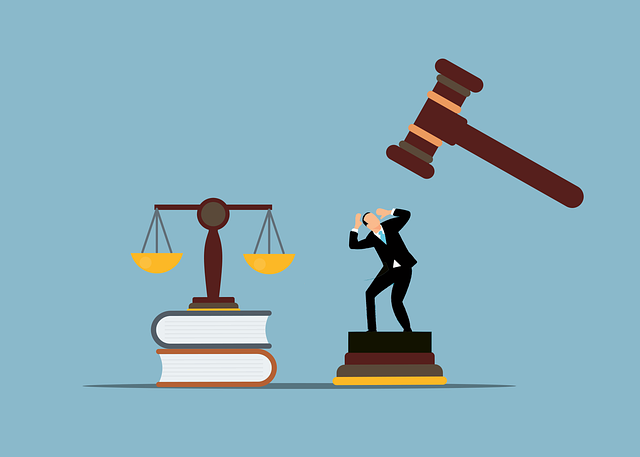Public corruption charges, including bribery, fraud, and embezzlement, significantly impact real estate litigation for landlords, necessitating strategic navigation and robust defense strategies. These involve meticulous documentation, financial records, expert testimony, and proactive communication with tenants to challenge allegations in white-collar and economic crime cases. Engaging experienced attorneys specializing in these crimes is crucial for mitigating risks and achieving favorable outcomes, promoting fairness, transparency, and the protection of landlords' reputations.
“Uncovering the intricate web of public corruption charges and their profound impact on the real estate sector is the focus of this comprehensive guide. With a deep dive into ‘Understanding Public Corruption Charges,’ we explore the legal definitions and implications, offering vital insights for landlords navigating complex litigation. We provide strategic real estate litigation tips, emphasizing evidence management, leveraging legal loopholes, and securing expert testimonies. Additionally, we delve into ethical considerations and the critical role of transparency in corruption cases.”
- Understanding Public Corruption Charges: Definitions and Legal Implications
- Strategies for Landlords in Real Estate Litigation: Navigating Legal Complexities
- Building a Solid Defense: Evidence, Legal Loopholes, and Expert Testimonies
- Ethical Considerations and the Role of Transparency in Corruption Cases
Understanding Public Corruption Charges: Definitions and Legal Implications

Public corruption charges encompass a range of illegal activities where public officials misuse their power for personal gain. This can include bribery, fraud, embezzlement, and abuse of office. Understanding these charges is crucial for several reasons, especially in the context of real estate litigation strategies for landlords. When a public official is accused of corruption, it not only reflects on their integrity but also has significant legal implications.
The investigative and enforcement process involves multiple stages where evidence is gathered and presented to establish guilt. Landlords may find themselves entangled in these cases if their transactions with corrupt officials are under scrutiny. A robust defense strategy is essential to navigate this complex landscape, especially when dealing with white-collar and economic crimes. Through meticulous documentation, financial records, and expert testimony, landlords can challenge allegations and work towards winning challenging defense verdicts.
Strategies for Landlords in Real Estate Litigation: Navigating Legal Complexities

In the intricate landscape of real estate litigation, landlords face unique challenges that demand strategic navigation. As high-stakes cases often involve complex legal terrains, a robust white collar defense becomes paramount. These disputes can range from tenancy issues to contract breaches, and understanding the nuances of evidence presentation and legal arguments is crucial for a favorable outcome. Effective strategies involve meticulous record-keeping, thorough communication with tenants, and proactive documentation of all interactions to build a solid defense against allegations.
By staying informed about relevant laws and regulations, landlords can anticipate potential pitfalls and mitigate risks. Engaging experienced attorneys specializing in white collar and economic crimes is key to disarming complex charges. These professionals guide through the labyrinthine legal system, ensuring every aspect of the case is addressed. In navigating real estate litigation, a proactive and well-informed approach not only protects landlords’ interests but also fosters fairness and transparency in the industry.
Building a Solid Defense: Evidence, Legal Loopholes, and Expert Testimonies

In navigating complex public corruption charges, a solid defense strategy is paramount. The foundation of any robust defense lies in meticulous evidence collection and analysis. This includes thorough documentation of financial transactions, communication records, and relevant documents pertaining to real estate dealings or other alleged corrupt activities. By employing innovative litigation strategies tailored for landlords and extending to corporate and individual clients across the country, legal teams can uncover potential loopholes and strengthen their cases.
Legal loopholes are a crucial aspect that experienced defense attorneys leverage. They scrutinize laws, regulations, and prior case precedents to identify gaps or ambiguities that can be exploited strategically. Additionally, expert testimonies play an invaluable role in shaping the narrative. Engaging industry experts, such as real estate specialists or financial analysts, can provide insights that challenge prosecution claims and achieve extraordinary results by presenting a compelling alternative interpretation of the evidence.
Ethical Considerations and the Role of Transparency in Corruption Cases

In public corruption cases, ethical considerations play a pivotal role. Transparency is not merely a tool for accountability; it’s an essential element that underpins the fairness and integrity of the justice system. When dealing with allegations of corruption, especially in high-profile cases involving prominent figures or influential corporations, maintaining transparency becomes critical. This includes open access to evidence, hearing proceedings, and decisions, ensuring that both the public and relevant stakeholders can scrutinize the process. A transparent approach fosters trust in the judicial system, strengthens democratic norms, and discourages future instances of corruption.
Real Estate Litigation Strategies for Landlords must incorporate these transparency principles to ensure fairness. This is particularly important given the intricate nature of real estate transactions and the potential for conflicts of interest. For corporate and individual clients alike, a complete dismissal of all charges can be achieved through robust legal defense strategies that leverage transparency. By presenting a clear, well-documented case, defending parties can demonstrate their integrity and mitigate the impact of corruption allegations, which often have far-reaching consequences for philanthropic and political communities.
Public corruption charges pose significant challenges for landlords involved in real estate litigation. Understanding the legal complexities, defining strategies that leverage evidence and legal loopholes, and prioritizing transparency are essential elements of a robust defense. By adopting these tactics, landlords can navigate the intricate landscape of real estate disputes while upholding ethical considerations, ensuring fairness, and promoting accountability in all transactions.






